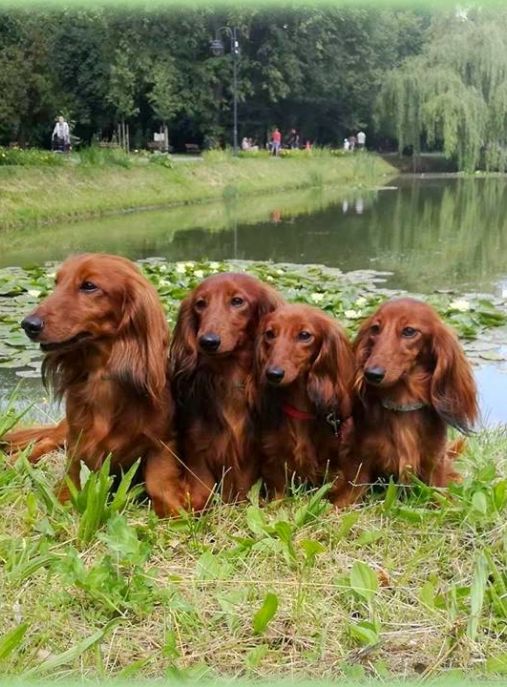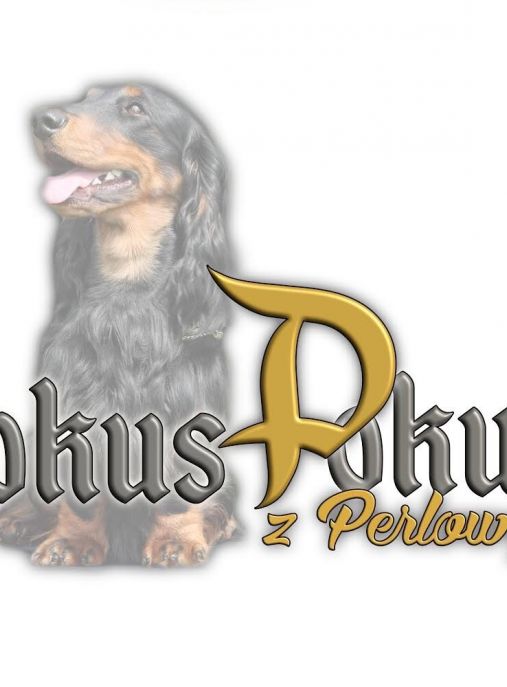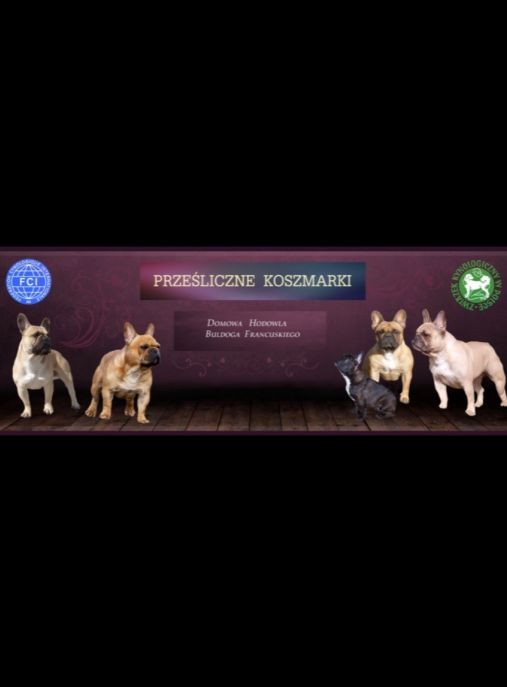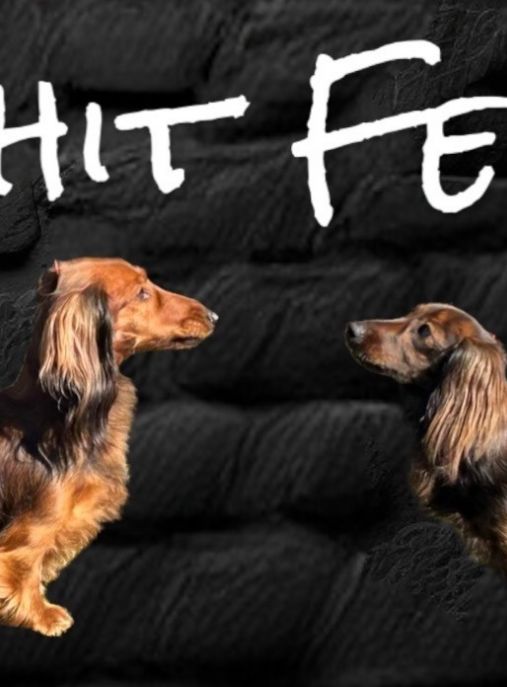The Rabbit Dachshund Long-haired, also known as the Long-haired Dachshund or the Teckel, is a charming and elegant dog breed that is beloved by many. With its distinctive long and silky coat, this breed stands out in a crowd and captures the hearts of dog enthusiasts worldwide. In this comprehensive text, we will delve into the history, characteristics, and interesting facts about the Rabbit Dachshund Long-haired breed.
Originating in Germany, the Rabbit Dachshund Long-haired breed has a rich history that dates back several centuries. The breed was initially developed to hunt small game, particularly rabbits, hence its name. The word "Dachshund" translates to "badger dog" in German, as they were also used for hunting badgers. Their elongated body, short legs, and keen sense of smell made them excellent hunters in narrow burrows and dense undergrowth.
According to the FCI (Fédération Cynologique Internationale) typology, the Rabbit Dachshund Long-haired belongs to Group 4: Dachshunds. This group includes various types of Dachshunds, such as the Smooth-haired, Wire-haired, and Long-haired varieties. The FCI recognizes the Rabbit Dachshund Long-haired as a separate breed, distinct from the other Dachshund types.
The Rabbit Dachshund Long-haired is a versatile breed that can adapt to various lifestyles and households. They make excellent companions for individuals, families, and even seniors. Due to their hunting background, they have a strong prey drive and may exhibit a stubborn streak. Early socialization and consistent training are essential to ensure they become well-rounded and obedient pets.
In terms of physical characteristics, the Rabbit Dachshund Long-haired is a small to medium-sized breed. They typically weigh between 16 to 22 pounds (7 to 10 kilograms) and stand at a height of 8 to 9 inches (20 to 23 centimeters) at the shoulder. Their elongated body is supported by short, sturdy legs, which give them a distinctive appearance. The long and silky coat is one of their most striking features, which comes in various colors and patterns, including black, chocolate, cream, red, and dappled.
The life expectancy of the Rabbit Dachshund Long-haired is around 12 to 16 years, which is relatively long compared to some other dog breeds. However, it is important to note that individual dogs may vary, and proper care, nutrition, and regular veterinary check-ups can contribute to their overall health and longevity.
One interesting fact about the Rabbit Dachshund Long-haired breed is their exceptional scenting ability. Their long, droopy ears help to funnel scents towards their nose, making them excellent trackers. Additionally, their tenacious and fearless nature allows them to tackle challenging terrains and burrows with ease.
Another fascinating aspect of this breed is their loyalty and affection towards their owners. They form strong bonds with their families and thrive on human companionship. However, they can be wary of strangers and may exhibit protective behavior, making them excellent watchdogs.
Despite their small size, the Rabbit Dachshund Long-haired requires regular exercise to maintain their physical and mental well-being. Daily walks, playtime, and mental stimulation activities are essential to prevent boredom and potential behavioral issues. However, it is important to avoid excessive jumping or activities that may strain their long back, as they are prone to spinal issues.
In conclusion, the Rabbit Dachshund Long-haired is a delightful and versatile breed that has captured the hearts of many dog lovers. With their elegant appearance, exceptional hunting skills, and loyal nature, they make wonderful companions for individuals and families alike. Whether you are seeking a dedicated hunting partner or a loving family pet, the Rabbit Dachshund Long-haired is sure to bring joy and companionship to your life.

Rabbit Dachshund Long-haired dogs, also known as the Long-haired Dachshunds, are a delightful breed known for their unique appearance and charming personalities. These dogs possess a character that is both endearing and captivating, making them a popular choice among dog lovers worldwide.
In terms of behavior, Rabbit Dachshund Long-haired dogs are known for their intelligence and independence. They are curious and alert, always eager to explore their surroundings. Their hunting instincts are deeply ingrained, as they were originally bred to hunt small game like rabbits. This can sometimes manifest in their behavior, as they may display a strong prey drive and a tendency to chase after small animals. Therefore, it is important to provide them with proper training and socialization from an early age to ensure they can coexist peacefully with other pets.
These dogs are also known for their loyalty and affection towards their owners. They form strong bonds with their families and thrive on human companionship. Rabbit Dachshund Long-haired dogs are often described as being "people-oriented" and enjoy being involved in family activities. They are known to be excellent watchdogs, alerting their owners to any potential danger with their sharp barks.
When it comes to raising and training a Rabbit Dachshund Long-haired dog, consistency and patience are key. These dogs are intelligent and eager to please, but they can also be stubborn at times. Positive reinforcement techniques, such as rewards and praise, work best when training them. Harsh or forceful methods can lead to resistance and may damage the trust between the dog and its owner.
Socialization is crucial for Rabbit Dachshund Long-haired dogs to ensure they grow up to be well-rounded and confident adults. Exposing them to different people, animals, and environments from an early age will help them develop good manners and prevent any potential behavioral issues. It is important to note that due to their small size, they may be prone to developing a "small dog syndrome" if not properly socialized. This can lead to excessive barking, aggression, and other undesirable behaviors.
Exercise is essential for Rabbit Dachshund Long-haired dogs to keep them physically and mentally stimulated. Despite their short legs, they have a surprising amount of energy and require regular exercise to prevent obesity and boredom. Daily walks, playtime, and interactive toys are great ways to keep them entertained and prevent any destructive behavior that may arise from boredom.
Grooming is another important aspect of caring for a Rabbit Dachshund Long-haired dog. Their long, silky coats require regular brushing to prevent matting and tangling. Additionally, they may need occasional professional grooming to maintain their coat's health and appearance. Regular dental care, nail trimming, and ear cleaning are also essential parts of their grooming routine.
In conclusion, Rabbit Dachshund Long-haired dogs are intelligent, loyal, and affectionate companions. With proper training, socialization, and care, they can thrive in any loving home. Their unique appearance and charming personalities make them a delightful addition to any family, bringing joy and happiness to their owners' lives.
The Rabbit Dachshund Long-haired dog, also known as the Long-haired Dachshund, is a charming and affectionate breed that requires specific care to ensure their well-being and happiness. Here are some tips on how to properly care for dogs of this breed, including what to do and what not to do:
1. Grooming: The long, silky coat of the Rabbit Dachshund Long-haired dog requires regular grooming to prevent matting and tangling. Brush their coat at least two to three times a week using a slicker brush or a comb with wide-spaced teeth. Be gentle while brushing to avoid hurting their sensitive skin. Regular grooming also helps to minimize shedding.
2. Bathing: Bathe your Rabbit Dachshund Long-haired dog only when necessary, as excessive bathing can strip their coat of natural oils. Use a mild dog shampoo and ensure thorough rinsing to prevent skin irritation. After bathing, gently towel dry their coat or use a low-heat blow dryer to avoid overheating.
3. Trimming: Regularly trim the hair around their ears, paws, and tail to maintain cleanliness and prevent matting. Be cautious while trimming to avoid accidentally cutting their skin. If you are unsure, seek professional help from a groomer.
4. Exercise: Despite their small size, Rabbit Dachshund Long-haired dogs are energetic and require regular exercise to stay healthy. Take them for daily walks or engage in interactive play sessions to keep them mentally and physically stimulated. However, avoid excessive jumping or strenuous activities that could strain their long spine.
5. Dental Care: Like all dogs, dental hygiene is crucial for Rabbit Dachshund Long-haired dogs. Regularly brush their teeth using a dog-specific toothbrush and toothpaste to prevent dental issues such as tartar buildup and gum disease. Additionally, provide them with appropriate chew toys to help keep their teeth clean.
6. Nutrition: Feed your Rabbit Dachshund Long-haired dog a balanced and nutritious diet to maintain their overall health. Choose high-quality dog food that is appropriate for their age, size, and activity level. Avoid overfeeding to prevent obesity, as excess weight can put strain on their long spine and lead to health problems.
7. Socialization: Rabbit Dachshund Long-haired dogs are social animals and thrive on companionship. Ensure they receive ample socialization from an early age by exposing them to various people, animals, and environments. This helps prevent behavioral issues such as shyness or aggression.
8. Veterinary Care: Regular veterinary check-ups are essential to monitor your Rabbit Dachshund Long-haired dog's health and catch any potential issues early on. Stay up-to-date with vaccinations, parasite prevention, and routine examinations. Additionally, be aware of breed-specific health concerns such as intervertebral disc disease and consult your vet for guidance.
What not to do:
1. Do not neglect grooming: Neglecting regular grooming can lead to painful matting and skin issues for your Rabbit Dachshund Long-haired dog.
2. Do not overfeed: Overfeeding can lead to obesity, which can be detrimental to their health, especially considering their long spine.
3. Do not skip exercise: Lack of exercise can lead to weight gain, boredom, and behavioral problems. Ensure your dog gets regular exercise to keep them happy and healthy.
4. Do not ignore dental care: Neglecting dental hygiene can lead to dental diseases and discomfort for your dog. Regular brushing and appropriate chew toys are essential.
5. Do not isolate: Rabbit Dachshund Long-haired dogs thrive on companionship. Avoid leaving them alone for extended periods as it can lead to separation anxiety and destructive behavior.
By following these tips and providing proper care, you can ensure that your Rabbit Dachshund Long-haired dog leads a healthy, happy, and fulfilling life.
The common color of Rabbit Dachshund Long-haired dogs is a sight to behold. These adorable creatures possess a wide range of colors that add to their charm and appeal. From rich and vibrant hues to subtle and delicate shades, the color variations in this breed are truly remarkable.
One of the most common colors seen in Rabbit Dachshund Long-haired dogs is a luscious and deep shade of chocolate brown. This color is often referred to as "chocolate" or "brown" and is characterized by its warm and inviting tone. The long, silky fur of these dogs enhances the richness of this color, giving them an elegant and regal appearance.
Another popular color seen in this breed is a striking shade of black. The black Rabbit Dachshund Long-haired dogs exude an air of sophistication and mystery. Their glossy, jet-black coats are a testament to their beauty and grace. The contrast between their dark fur and their expressive eyes creates a captivating and alluring look.
In addition to brown and black, Rabbit Dachshund Long-haired dogs can also be found in a stunning array of other colors. These include shades of cream, fawn, and red. The cream-colored dogs possess a soft and delicate appearance, with their fur resembling the color of freshly whipped cream. Fawn-colored dogs, on the other hand, exhibit a warm and earthy tone, reminiscent of a sandy beach at sunset. Lastly, the red-colored dogs boast a fiery and vibrant hue, akin to the color of a ripe cherry.
One of the unique aspects of Rabbit Dachshund Long-haired dogs is their ability to have a combination of colors. These dogs can exhibit a mix of two or more colors, creating a mesmerizing and eye-catching appearance. For instance, a Rabbit Dachshund Long-haired dog may have a coat that is predominantly black but with patches of brown or cream. This blending of colors adds depth and complexity to their overall appearance, making them truly one-of-a-kind.
It is important to note that the color of a Rabbit Dachshund Long-haired dog's coat can vary within the breed. Some dogs may have a solid color throughout their entire coat, while others may have a pattern or markings that further enhance their unique appearance. These patterns can include brindle, dapple, or piebald, among others.
In conclusion, the common color of Rabbit Dachshund Long-haired dogs is a captivating and diverse palette. From the rich and velvety chocolate brown to the sleek and mysterious black, these dogs possess a wide range of colors that make them truly enchanting. Whether they sport a solid color or a combination of hues, Rabbit Dachshund Long-haired dogs are a visual delight that never fails to capture the hearts of dog lovers everywhere.
The health of Rabbit Dachshund Long-haired dogs is of utmost importance to ensure a happy and fulfilling life for these adorable canines. This breed, known for its elongated body and beautiful long hair, requires specific care and attention to maintain their overall well-being. While they are generally healthy dogs, there are a few common diseases that can affect Rabbit Dachshund Long-haired dogs.
One of the most prevalent health issues in this breed is Intervertebral Disc Disease (IVDD). Due to their elongated bodies, Dachshunds are more prone to spinal problems. IVDD occurs when the discs between the vertebrae become herniated or ruptured, causing pain, paralysis, and even loss of bladder control. Regular exercise, maintaining a healthy weight, and avoiding activities that put excessive strain on the back can help prevent this condition. If your Rabbit Dachshund Long-haired dog shows signs of back pain or weakness, it is crucial to seek veterinary care immediately.
Another common health concern in this breed is obesity. Dachshunds have a tendency to gain weight easily, which can put strain on their backs and joints. It is essential to provide a balanced diet, portion control, and regular exercise to prevent obesity. Feeding a high-quality dog food appropriate for their age and size, along with monitoring their calorie intake, will help maintain a healthy weight.
Dental issues are also prevalent in Rabbit Dachshund Long-haired dogs. Their small mouths and crowded teeth make them more susceptible to dental problems such as tartar buildup, gum disease, and tooth decay. Regular dental care, including brushing their teeth, providing dental chews, and scheduling professional cleanings, is vital to prevent dental issues and maintain overall health.
Eye problems, including cataracts and progressive retinal atrophy (PRA), can also affect this breed. Regular eye examinations by a veterinarian can help detect these conditions early on, allowing for appropriate treatment or management. Additionally, keeping the eyes clean and free from debris is essential to prevent infections.
To care for the health of Rabbit Dachshund Long-haired dogs, regular veterinary check-ups are crucial. These visits should include vaccinations, parasite prevention, and overall health assessments. Grooming is another essential aspect of their care. Their long hair requires regular brushing to prevent matting and to keep the coat healthy and shiny. Bathing should be done as needed, using a gentle dog shampoo.
Exercise is vital for Rabbit Dachshund Long-haired dogs to maintain a healthy weight and prevent back problems. However, it is important to avoid activities that involve jumping or excessive strain on their backs, such as high jumps or long staircases. Instead, opt for low-impact exercises like swimming or short walks.
Lastly, providing a safe and comfortable environment is crucial for their well-being. Rabbit Dachshund Long-haired dogs should have a cozy bed or crate that supports their back and joints. Avoid allowing them to jump on and off furniture, as this can put unnecessary strain on their backs.
In conclusion, Rabbit Dachshund Long-haired dogs are generally healthy, but they are prone to specific health issues. By providing proper care, including regular veterinary check-ups, a balanced diet, regular exercise, dental care, and a safe environment, you can ensure the optimal health and well-being of these delightful dogs.
Rabbit Dachshund Long-haired dogs, also known as Long-haired Dachshunds, are a small breed with a distinct appearance and unique nutritional needs. Proper nutrition plays a vital role in maintaining their overall health, energy levels, and coat quality. In this text, we will provide an extensive description of their nutrition, offer advice on how and what to feed them, and highlight things to avoid.
Long-haired Dachshunds have a moderate energy level and require a balanced diet to support their daily activities. The primary components of their nutrition should include high-quality proteins, healthy fats, complex carbohydrates, vitamins, and minerals. Here are some key points to consider when feeding a Rabbit Dachshund Long-haired dog:
1. Protein: Choose a dog food that contains high-quality animal-based proteins such as chicken, turkey, or fish. These proteins provide essential amino acids necessary for muscle development and repair.
2. Fats: Healthy fats, such as omega-3 and omega-6 fatty acids, are crucial for maintaining a shiny and healthy coat. Look for dog foods that include fish oil, flaxseed, or chicken fat as sources of these beneficial fats.
3. Carbohydrates: Opt for complex carbohydrates like whole grains (brown rice, oats) and vegetables (sweet potatoes, peas). These provide a steady release of energy and essential fiber for digestive health.
4. Vitamins and Minerals: Long-haired Dachshunds require a well-balanced mix of vitamins and minerals to support their overall health. Look for dog foods that contain a variety of fruits and vegetables to provide these essential nutrients.
5. Portion Control: It's important to feed your Rabbit Dachshund Long-haired dog the appropriate amount of food based on their age, weight, and activity level. Overfeeding can lead to obesity, which can put strain on their joints and overall health.
6. Fresh Water: Always ensure your dog has access to fresh, clean water throughout the day. Hydration is essential for their overall well-being.
While it's important to know what to include in their diet, it's equally crucial to be aware of what to avoid feeding your Rabbit Dachshund Long-haired dog:
1. Toxic Foods: Certain human foods can be toxic to dogs, including chocolate, grapes, raisins, onions, garlic, and artificial sweeteners like xylitol. These can cause severe health issues and should be strictly avoided.
2. Table Scraps: While it may be tempting to share your meal with your furry friend, it's best to avoid feeding them table scraps. Human food often contains excessive salt, spices, and unhealthy fats that can upset their digestive system.
3. Raw or Undercooked Meat: Raw or undercooked meat can contain harmful bacteria like Salmonella or E. coli, which can lead to food poisoning. Always ensure that any meat you feed your dog is properly cooked.
4. Excessive Treats: Treats can be a great way to reward your dog, but excessive treats can lead to weight gain and nutritional imbalances. Choose healthy, low-calorie treats and use them sparingly.
In addition to a balanced diet, regular exercise is essential for maintaining the overall health and well-being of your Rabbit Dachshund Long-haired dog. Consult with your veterinarian to determine the specific nutritional needs of your dog based on their age, weight, and any specific health conditions they may have.
Remember, every dog is unique, and it may take some trial and error to find the perfect diet that suits your Rabbit Dachshund Long-haired dog. By providing them with a nutritious and balanced diet, you can ensure they lead a happy, healthy, and active life.
















